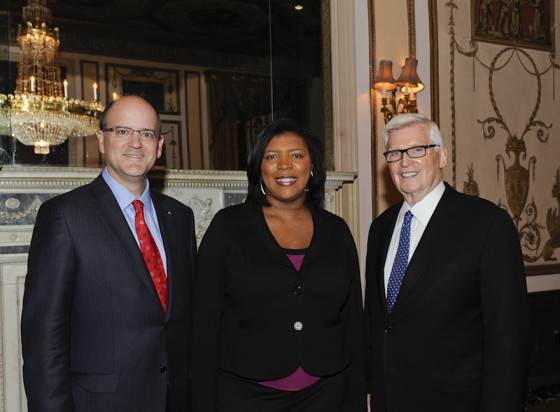New findings on climate change, establishing it as a manmade phenomenon, are garnering attention from the insurance industry, which recommends immediate action.
The Intergovernmental Panel on Climate Change’s (IPCC) newest report “clarifies what businesses and investors already know, that climate change is happening now and human activity is the dominant reason why,” Mindy Lubber, president of CERES, a nonprofit organization that works with insurers and investors said recently on a conference call. “Climate change is disrupting all aspects of our global economy, including supply chains, commodity markets and the entire insurance industry, which is seeing exponentially large losses from extreme weather events.”
Lara Mowery, managing director, head of global property specialty practice with Guy Carpenter & Co., noted that the report should cause “significant concern” and impact how insurers and reinsurers shape their business going forward.
Insurers’ and reinsurers’ business plans “depend critically on understanding and assessing risk, which is likely to become even more challenging as weather variability increases,” she said. Identifying and understanding the causes and consequences of climate change is essential to “implementing workable risk management solutions.”
Global cat losses are increasing, she explained. In the 1980s, “the rolling 10-year annual average for the worldwide cat loss was less than $10 billion. In the last few years that average has jumped up to more than $50 billion average, based on that 10-year rolling time frame.” In addition, 2005, 2011 and 2012 represent the top three insured cat loss years on record, she noted.
Given the IPCC’s conclusion on flood, drought and changing weather patterns and evidence of this over the past 50 years, the industry needs to evaluate how these changes could impact future losses. As an example, she said, the most widespread hazard of global warming is coastal flooding. Impact of events such as Superstorm Sandy, which produced devastating storm surge, could have even worse consequences if sea levels continue to rise. “Insurers and reinsurers must continually assess the most up to date research and adjust their business plans according to increases in calculated loss.”
While this has meant more insurer capital is at risk, “that can’t be the only response, the only solution and the only answer. We can’t just keep putting more money in the path of what’s happening,” Mowery said.
She emphasized that the industry and insurance buyers can be taking steps now to address the risks.
A recent example of innovation in this area is the Metropolitan Transportation Authority’s (MTA) $200 million catastrophe bond that was issued in July, “the first of its kind to cover storm surge specifically,” she explained. The MTA commented in the aftermath of Sandy that their traditional avenues for insurance and reinsurance “constricted dramatically,” making it more difficult for them to obtain the kind of risk transfer they needed.
She also pointed out that “We can’t continue to let human and economic costs escalate. Building codes and standards and land use strategies are accepted adaptation measures to improve resilience against flood, wind and fire impacts that may worsen under global warming.”



